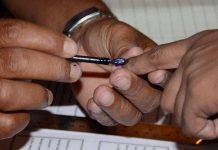Almost a year after the DHFL fraud came to light, the Mumbai Police is set to start criminal investigations against the housing finance company and its promoters for the 17,300 crore alleged scam. A Mumbai Metropolitan Court at Ballard Pier area has directed the police to investigate DHFL for cheating, fraud, and funds siphoning under the Indian Penal Code.
A report by Vinod Kohli
Last year, a massive loan and deposit scam worth over 17,300 crore was unearthed by the auditors of DHFL and the details were submitted to the bankruptcy court. Following this, both the Central Bureau of Investigations (CBI) and Enforcement Directorate (ED) swung into action and started probing DHFL and its promoters including Kapil Wadhawan, Dheeraj Wadhawan, Township Developers India, Wadhawan Holdings, Dheeraj Township Developers, Wadhawan Consolidated Holdings among other for money laundering, links to gangsters and the drug mafia.
With this development, FD holders of Dewan Housing Financial Limited (DHFL) can hope to recover their hard-earned money. In their effort to get their money back, poor senior citizens and retired government employees had written several letters to the President of India, the Prime Minister, the Union Finance Minister, the RBI Governor, and many other senior functionaries drawing their attention to the siphoning off of over 31,000 crores by DHFL. They deposited a huge amount, their lifetime’s savings, with the company with the hope of getting sufficient return for their old age, but now they are faced with a disastrous situation. It is also mentioned in their representation that around 2,000 crores is involved as repayment to FD holders. Now they have come to know that the government is planning to hold with it 75 percent of their maturity amount and only a 25 percent amount will be paid to them.
The depositors have also alleged that in the meantime DHFL has restarted its lending process without payment of their dues to the depositors. Their representation further says, ”FD holders are not lenders like banks and financial creditors, and should not be clubbed with banks and financial creditors in the matter of repayment. It is also stated that they are not strong enough to negotiate the resolution process and have demanded de-clubbing of the FD holders from other creditors, and full maturity amount should be paid to the poor creditors.” In their representation, they also stated that despite the RBI and the National Housing Bank (NHB) being the regulators of the AAA-rated company — DHFL — it is difficult to understand how such a big scam has happened under their very nose.
According to Prashant K Mishra, an FD holder, as per Section 73(4) of the Company Act 2013, when a company fails to repay a depositor or part thereof, the depositor can apply to the National Company Law Tribunal to get his dues credited to his bank account. Notably, there is a total debt of 87,000 crore which the company has as its liability. Of this, loans of
58,000 crore relate to public sector banks and government companies and loans totaling 10,000 crore relate to private banks.
Now it comes to the notice of the depositors that DHFL is going to be dealt with in accordance with the Indian Bankruptcy Act. In such a scenario, the responsibility lies with the government to protect the interests of the depositors by ensuring repayment of their dues to the FD holders. Hence, the concerned
dispute resolution committee and NCLT are bound to understand the misery of the common man.
There should be no haircut to the claimed amount of the depositors on the grounds that most of the depositors have parked their money like pension funds as they are not eligible to get any kind of pension from the PPF or the EPFO or the Government Service Pension Scheme. If they do not get back this deposited amount of FD, they will get ruined. These deposits are not a lending or loan amount but it is a saving amount deposited as a term deposit. Depositors have invested their hard-earned money as a fixed deposit in DHFL so that they can use the same to meet their day-to-day expenses when they are no longer fit to work or when they need their money as an emergency requirement or in an event of the death of the earning member in their family. Most of these Fixed Deposit holders are more than 65 years old or very senior citizens, who are not earning and cannot get a job in their old age. The scam rattled the nation last year when it was alleged that the company used the money for a political charity by sanctioning loans to companies in Gujarat and Karnataka before the state elections.
Anurag Thakur, State Minister for Finance, GoI, recently stated in one such case that auditors and regulators should be held responsible by the NCLT and asked to pay the full amount to every investor of the company. Ashok Khemka, a senior IAS officer, known for his honesty, said, ”As far as I understand, it is a rock-solid case for the RBI to intervene in this daylight robbery.”
The primary promoters of a non-banking financial company (NBFC), DHFL, siphoned off more than 31,000 crores of public money through grants of loans and advances to shell companies. The same money has been re-routed via some dubious companies that parked this money outside India to acquire assets. Its modus operandi of the company has been sanctioning and disbursing astronomical amounts in secured and unsecured loans to dubious shell companies which were related to DHFL’s primary stakeholders — the Wadhawan family. DHFL created dozens of shell companies with a nominal capital of Rs 1 lakh and divided these into smaller groups. Then DHFL disbursed huge loans to these groups without any kind of collateral just to create private assets inside or outside India.
In 2017-18, the company’s net worth was 8795 crore but it has taken loans from 36 banks (32 nationalized banks and private banks and six foreign banks) to the tune of 96,880 crores, including Convertible Debentures worth 31,312 crores. The State Bank of India sanctioned the highest loan of 12,000 crores followed by the Bank of Baroda.
The Wadhawan Group and the chief promoters of DHF have been given unsecured loans amounting to 10,493 crores. Another 11 companies belonging to the Shahana Group have been given 3,789 crores. It is these shell corporations that are using loans in order to aid the Wadhawan Group and Shahana Group to convert public funds into private money. Most of these 34 shell companies have no business or income. Strangely enough, they are also, in most cases, audited by accounting agencies such as Thar and Co, who help conceal these fraudulent transactions. It is interesting to note that out of the companies mentioned above, six use the same official email address.
DHFL reportedly hid the terms of the loan and repayment in their financial statement. More importantly, all the shell companies have zero or very negligible income from business operations since their inception. According to the story: “Not only does the scam point fingers squarely at the inefficient corporate governance of NBFCs, but it also asks serious questions about the amount of negligence or perhaps connivance and complicity of public bodies. It is clearly a case of complete connivance amongst public and private figures to misuse and illegally siphons off public money.” On the other hand, DHFL stated that it was a publicly listed Housing Finance Company and is regulated by the National Housing Bank and the Securities and Exchange Board of India, among other regulators, and allegations seemed to have been leveled with a mala fide intent to cause damage to the goodwill and reputation of DHFL, resulting in erosion in its share value.
The company has around 1 lakh crore of assets under management and a large customer base across the country. Despite the recent liquidity regime, DHFL as a responsible corporate unit has met all its obligations to the lenders and has paid back to them in excess of 17,000 crores in the last three months. But the huge maturity amount of poor senior citizens and retired government employees has remained stuck in a legal tangle.
tehelkaletters@gmail.com












